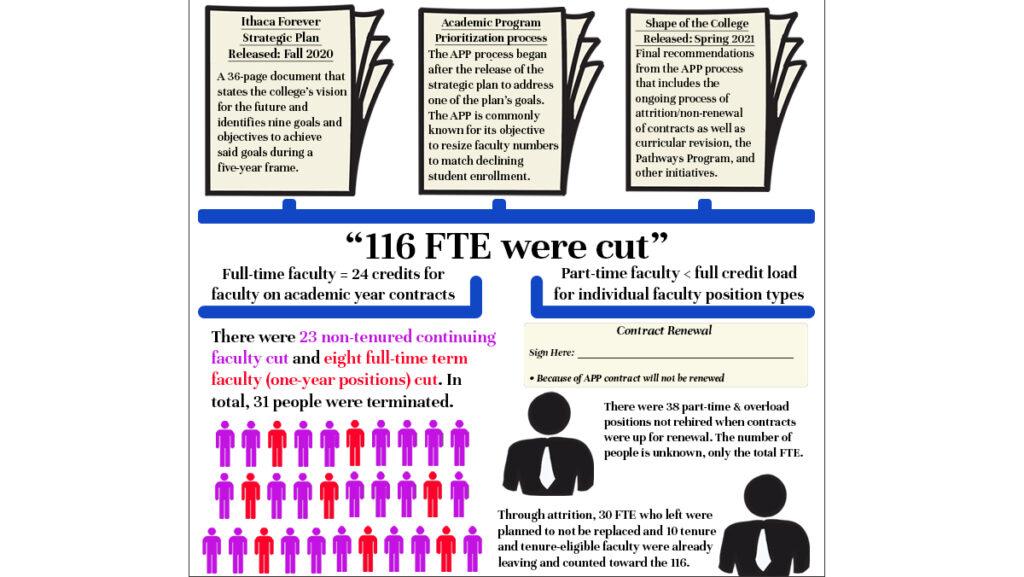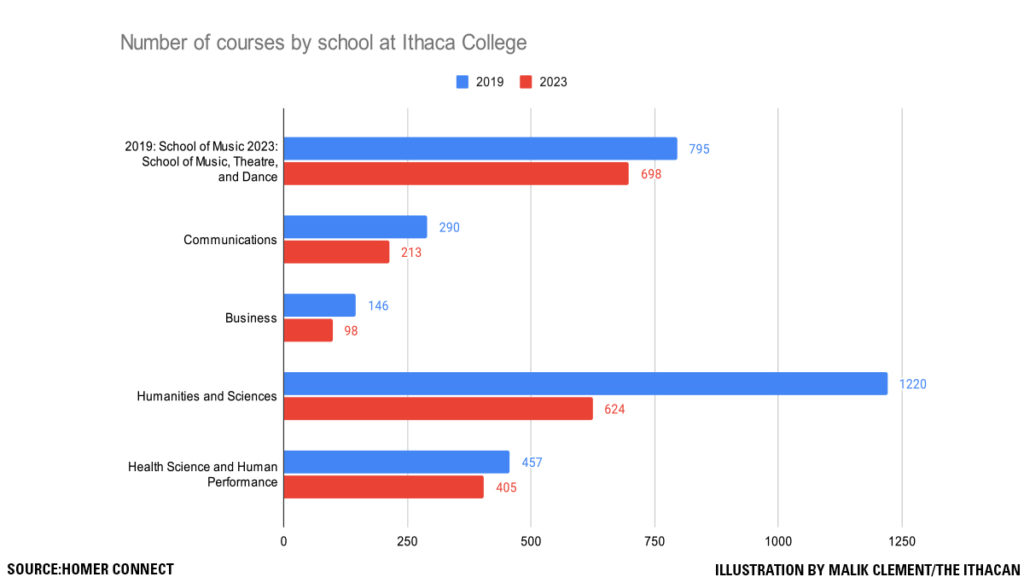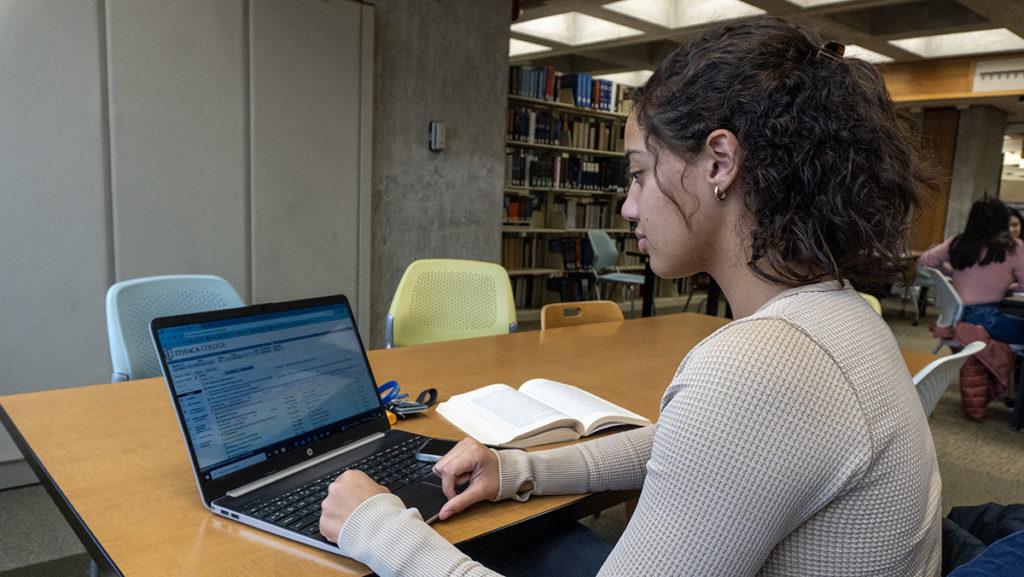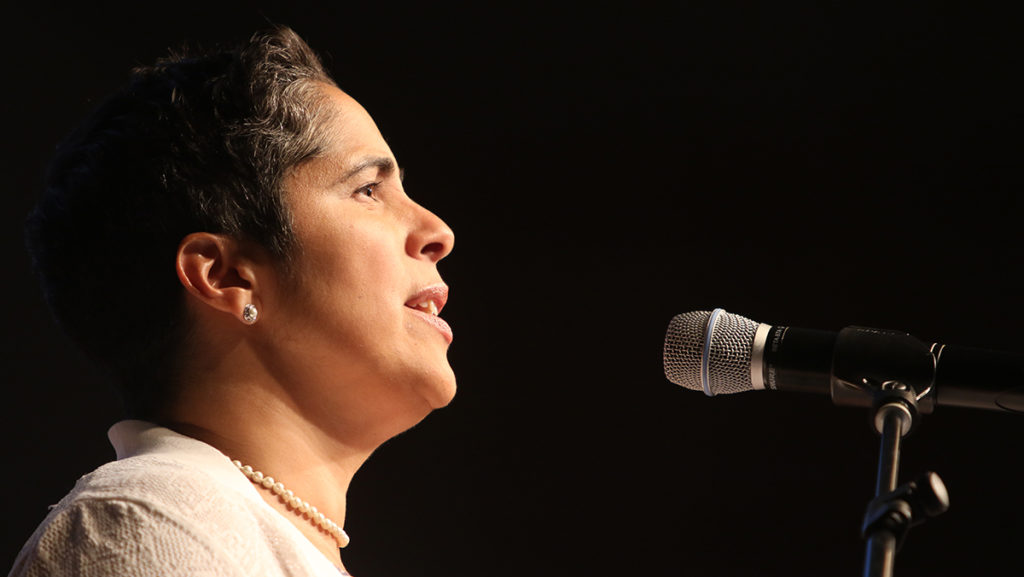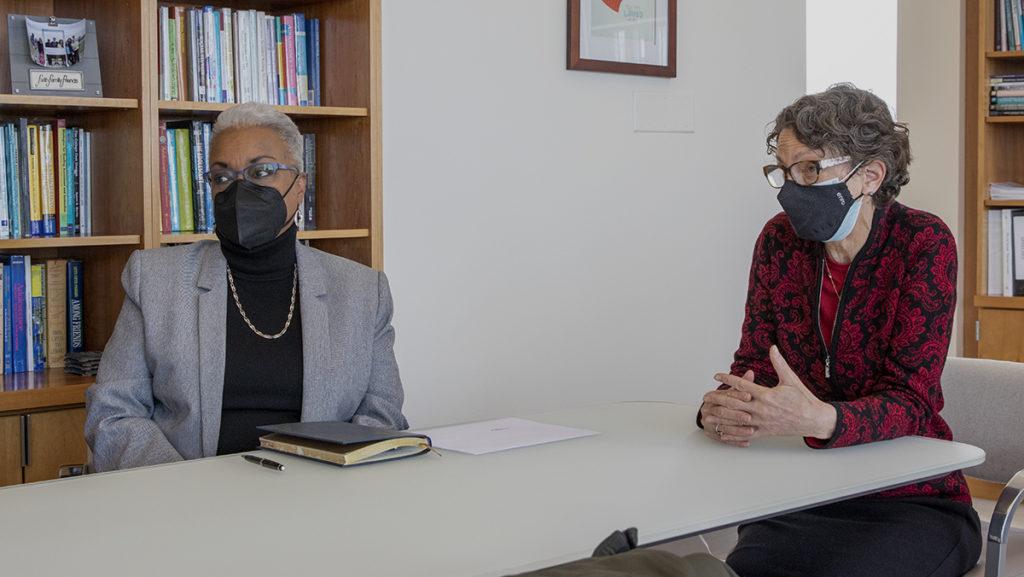Ithaca College Alumni Against Austerity (ICAAA) voiced its discontent with the approval of the final recommendations for faculty and program cuts in a March 1 event.
The ICAAA is a group of alumni who are opposed to the Academic Program Prioritization (APP) process. President Shirley M. Collado and La Jerne Cornish, provost and senior vice president for academic affairs, approved the final recommendations for the cuts Feb. 24. This event occurred directly after a meeting with alumni, the Ithaca College Board of Trustees and the Alumni Association Board of Directors on March 1. Some alumni requested that the meeting be moved to before the APP plan was set to be approved, but these requests were not taken.
Approximately 94 alumni, students and faculty members attended the gathering.
The event opened with John Burger, lecturer in the Department of Health Promotion and Physical Education, singing a song he wrote for the faculty who were terminated as part of the APP. He said he wished the group was meeting under different circumstances, but the fight has just begun.
Greg Peterson ’09 explained that the college does have financial issues but not like other institutions during the pandemic.
“This [APP] was intended to be a gradual process, however, COVID presented an opportunity to take advantage of a moment of collective trauma that we’re in and really reengineer this school, at a time where people are more willing to give up things that they would normally protect,” Peterson said.
Sarah Grunberg ’08, former lecturer in the Department of Sociology, and Sara-Maria Sorentino ’08 started a GoFundMe fundraiser March 1 called the “IC Alumni Action and Worker Support Fund.” The money raised will go toward resisting the APP and to the staff and faculty who are being impacted by the cuts. Of the money raised, 80% will go to the impacted faculty and staff and 20% will fund legal fees, movement building, materials and printing. The fundraiser also calls on the college’s leadership to stop all the layoffs; establish shared governance where students, faculty and staff have decision making power; bargain in good faith with the Contingent Faculty Union; and release a clear document outlining the college’s financial status.
Fae Dremock, assistant professor in the Department of Environmental Studies and Sciences, spoke about the departments getting slashed at the college. She said these decisions have cost her and many others a career. She said the process ignores curricular needs and institutional history, without faculty input.
Departments at the college have voiced their opposition to the cuts and the consequences that these cuts will have on their curriculum.
Elijah Breton ’16 said it is necessary for alumni to have a say in these decisions. He expressed dissatisfaction with the Alumni Association Board of Directors. The alumni board works in an advisory capacity to help guide the college’s efforts to create strong ties between the alumni and the college. He said he thinks the alumni board’s role in these decisions and how they represent the alumni voice need to be examined.
“Simply put, they failed us,” Brenton said.
James Miranda, lecturer in the Department of Writing and chair of the Contingent Faculty Leadership Committee, said these decisions are a step toward mediocrity for the college.
“It’s the contingent faculty that are really taking the brunt of this, which is very sad seeing that this union was just formed in 2017 after extensive effort after many, many people who worked for years to make that union happen,” Miranda said. “It is now being essentially gutted by the school, the only faculty union on campus.”
The college is not eliminating tenured and tenure-eligible faculty, and according to Section 4.9.8 of the Ithaca College Policy Manual, terminations resulting from the discontinuation of a program will be done in the order of part-time per-course faculty, adjunct faculty, faculty employed by term appointments, non-tenure-track faculty, tenure-eligible faculty and tenured faculty.
He said the Contingent Faculty Leadership Committee has made requests to the college to aid terminated faculty members. He said it asked the administration to mention COVID-19 in the termination letter so that staff can get unemployment insurance sooner and to send the termination letters out in a timely fashion. He said it also requested that the college do anything it can to keep faculty members on H-1B visas, which allow people to work in the United States if they receive an offer of employment, so they would not be deported. He said they requested library and Netpass access so faculty can continue their research and write letters of recommendation for students and alumni.
“We were told categorically no to every single request, categorically no because the answer was really, ‘We are not legally obligated to do that,’” Miranda said.
According to the FAQ section of the APP website, the Office of Human Resources worked with the Academic Program Prioritization Implementation Committee and the deans to create a resource guide for eliminated faculty members. This guide is only available to faculty members and includes information about health insurance, applying for unemployment benefits and future employment.
Mary Bentley, associate professor in the Department of Health Promotion and Physical Education and vice president of the IC AAUP, said she appreciates the voice the group has created. The IC AAUP is an advocacy body open to all faculty, regardless of rank or appointment. She said she believes that faculty are afraid.
“This is pretty classic disaster pimping,” Bentley said.



